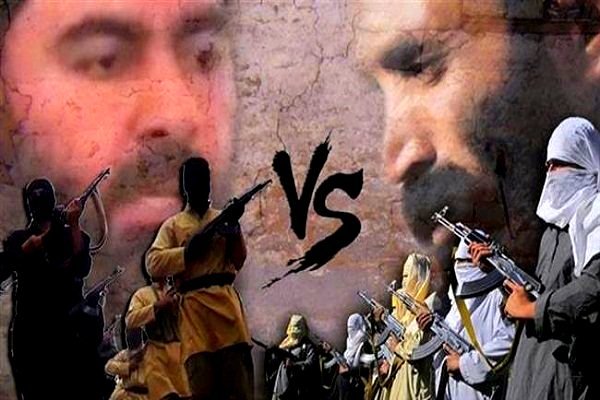Taliban or ISIL, which one!?

In the face of the concealed but rising threat of ISIL in Afghanistan, what significance does the death of Taliban leader Mullah Akhtar Mohammad Mansoor have?
Mullah Omar, Mullah Mansoor, Mullah Rasool, or Mullah Yaqoob or today Mullah Haibatullah Akhunzada!? The breathless terrorist leaders, do they have much difference?
Almost nine months after the death of Mullah Omar and the selection of Mullah Mansoor as the new leader of the militant group, once again the death of Mullah Mansoor made Taliban, beyond its leaders, the focal point of political and security analysts.
Taliban leader Mullah Akhtar Mohammad Mansoor was killed in an American drone strike in the restive Pakistani province of Baluchistan.
Mullah Mansoor, the heavyweight Taliban leader who also held the first rank in illicit drug smuggling, was selected as the leader of the Taliban nine months ago. However, since two years ago when Mullah Omar was killed he was secretly the Ace of Spades of the Taliban in the dark.
In the phenomenology of terrorism from both political and security aspects this is a shameful intelligence weakness. It is not only a failure for security sources in Kabul, but also a total embarrassment for NATO and the United States, who rely on such intelligence to counter Taliban.
In a snap look at the incident considering the intelligence they receive, the question still remains that how the abovementioned sources did not get informed of Mullah Omar’s death in two years!?
Now one can learn about the real reasons behind the failure in the fight against terrorism.
A high ranking official in the Afghan presidential office says: “The case is not only getting the right intelligence. The West is watching the Taliban from a far distance, but they can’t see the tip of their nose.”
The official who requested not to be named went on to say: “No one is ready to answer the question that why our efforts to negotiate with Taliban in the past year did not bear any fruit.”
He said, “They have closed their eyes on a reality named Islamabad.”
Analyzing the election of Mullah Haibatullah Akhunzada as Taliban leader, the official said: “Did you expect anything else? He is the first name of the past two months’ acts of terrorism and a professional drug dealer. But his outstanding character is being a full servant of ISI (Inter-Services Intelligence). Our friends do not want to realize this fact.”
However what would be the political and security consequences of Mullah Mansoors’s death and the succession of Akhunzada in Afghanistan’s developments?
From my point of view this is not a very important issue. The Taliban issue is not just abbreviated in its leadership. Washington and Kabul say by Mullah Mansoor’s death an obstacle to peace negotiations has been removed. Well, attack on a vehicle that Mullah Mansoor was travelling in was a masterpiece in military attacks. But if we look and analyze the Taliban beyond its leadership we will find ourselves facing a bunch of Taliban loyalists that ISIL is trying to hunt them and eventually make optimum use of such fighters.
The terrorists who are not so loyal to their leaders anymore, within such framework it does not make a big difference if the Taliban leader be the slain Mullah Mansoor or Akhunzada or Mullah Yaqoob or Mullah Rasool.
The main cause of worry is the ability of Taliban fighters to run out of the traditional circle of Taliban leadership and join more organized forces or groups such as ISIL.
Many of the aforementioned Taliban fighters in north and northeast, under the guidance of a man called Shahidullah Shahid, made allegiance with ISIL leader Abu Bakr al-Baghdadi in mid-July last year.
The ISIL terrorist group - enjoying the charm of “limitless geographical boundaries”, “self-interpreted Islamic rule” and “high level of financial power” - has a very good chance in attracting the Taliban and al-Qaeda fighters and so far ISIL has proven to be successful in recruiting them.
Local reports also indicated the vast and calm influence of the Taliban in Afghanistan. An official from Helmand province says: “We feel their eyes and the frigidity of their weapons behind our heads (hunting us).”
The shock of the fall of Kunduz province to the Taliban in late September or the loss of the strategic town of Sangin in Helmand province with the help of ISIL has not been forgotten yet, while Mullah Mansoor was still alive.
We have to be more concerned and worried about ISIL in Afghanistan than Mullah Mansoor or Haibatullah, particularly when it comes to Western and Central Asia.
